Floyd Mayweather Jr., popularly called “The Best Ever,” is probably the most legendary boxing star ever. Best known for his undefeated streak throughout his career and post that too, “Pretty Boy” fought in several divisions and remained victor in all of them. But, which was the best weight class for Floyd Mayweather?
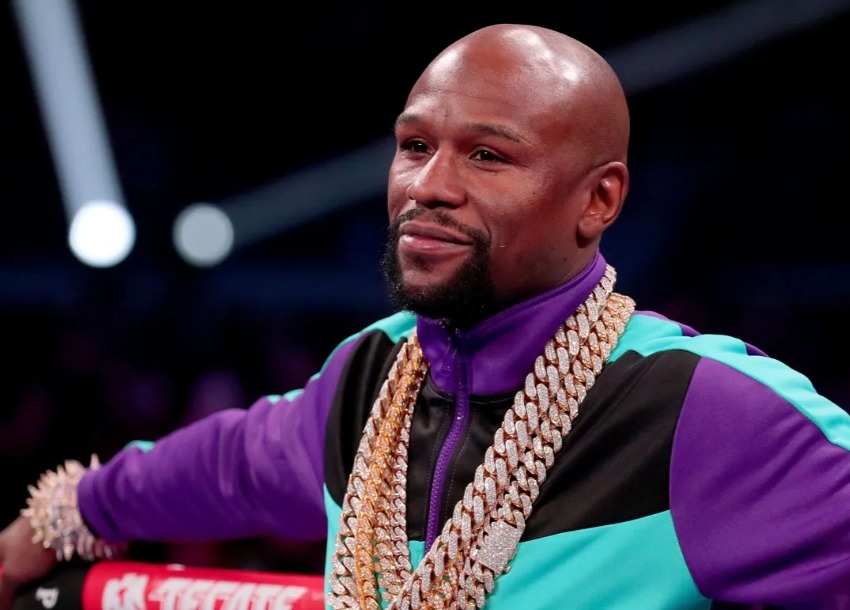
From Super Featherweight to Light Middleweight, Floyd Mayweight dominated a total of five divisions in an illustrious career and won several titles. The fact no one ever handed him a loss in his professional boxing career that spanned over two decades is simply unmatchable. He’s undefeated even in exhibition fights!
Let’s have a look at all the weight classes Floyd Mayweather fought in and which division suited him the most in this post alongside the key takes from his career.
Contents
Which Weight Class did Floyd Mayweather Fight in?
Floyd Mayweather Jr. fought in five weight classes in his professional boxing career between 1996 and 2017. He remained victorious in super featherweight, lightweight, light welterweight, welterweight, and light middleweight divisions and won 15 major world championships.
These include the WBC Super featherweight champion, WBC Lightweight Champion, WBC Super Lightweight champion, IBF Welterweight champion, WBC Welterweight champion, WBC Light Middleweight champion, WBA(Super) light middleweight champion, WBA (Super) welterweight champion and WBO Welterweight champion.
Along with this, Mayweather is also an Olympic bronze medalist from the 1996 Atlanta Olympics. He also won the Golden Gloves championships at light flyweight, flyweight, and featherweight division in 1993, 1994, and 1996, respectively. Mayweather also won the U.S. national championship at featherweight.
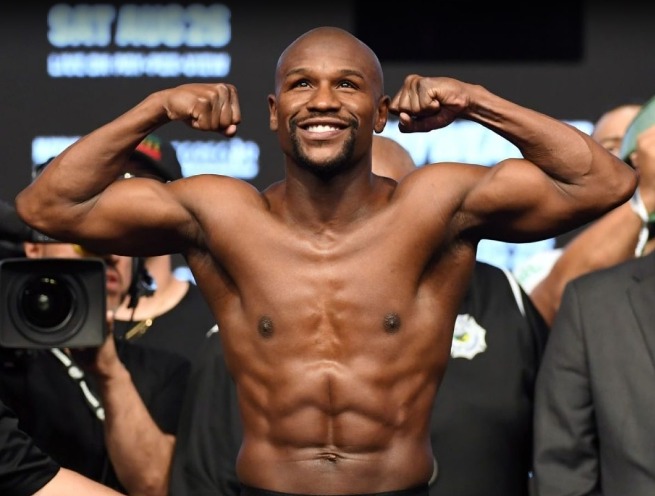
Floyd Mayweather in the Super Featherweight Division:
Coming from an amateur boxing record of 84 wins and 8 losses with an Olympic bronze medal and three Golden Gloves champions, Floyd Mayweather turned professional in 1996 against Robert Apodaca in the super featherweight division. He comfortably won the fight to start a streak that was never broken.
“Pretty Boy Floyd Mayweather” had 27 fights at super featherweight and scored astonishing knockouts in his first few fights but the rate dropped later on. After his 14th fight, Mayweather’s father became his trainer and this helped “The Best Ever” to enhance his skills significantly.
Within just two years of professional boxing, he won his first world title by defeating the then World No. 1 Genaro Hernandez for the WBC Super Featherweight (130lbs) Championship. He successfully defended his title thrice in 1999 against Carlos Rico, Justin Juuko, and Carlos Garena.
He also fought Gregorio Vargas, Emanuel Burton, and former IBF super featherweight champion Diego Corrales. Both Corrales and Mayweather were undefeated before the two met but “Money” successfully handed Diego his first professional loss in a hard-hitting fight. Mayweather broke another undefeated streak in his last fight in this division when he defeated Jesus Chavez who held a 31-bout winning streak.
Floyd Mayweather in the Lightweight Division:
After an immensely successful run in the super featherweight class, Mayweather thought about challenging himself and moved up to the lightweight division. In 2002, he fought José Luis Castillo twice for the vacant WBC and Ring Magazine titles, first as a challenger and then as a champion.
After that, he also defended his WBC lightweight title against Dominican Victoriano Sosa and the then WBC #1-ranked contender Phillip N’dou. Due to this feat, he became the #5 ranked best pound-for-pound boxer.
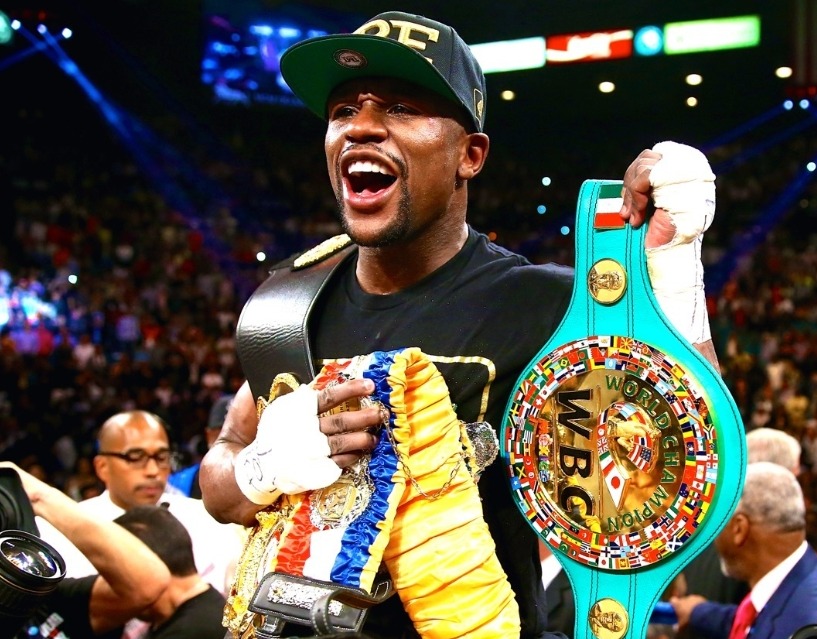
Floyd Mayweather in the Light Welterweight Division:
In 2004, Mayweather moved up to the light welterweight division and defeated the former champion DeMarcus “Chop Chop” Corley in his first bout. Next year, he defeated Henry Bruseles which made him the mandatory challenger for the championship.
On June 25, 2005, Floyd “Money” Mayweather defeated Arturo Gatti with sheer domination to win his third world title. Soon after, the Pretty Boy moved up a division where he had one of the most lucrative phases of his professional boxing career.
Floyd Mayweather in the Welterweight Division:
In the Welterweight (147lbs) division, Floyd Mayweather came to blows against some of the biggest names in the industry such as Zab Judah, Ricky Hatton, Victor Ortiz, Shane Mosley, Marcos Maidana, Manny Pacquiao, and Andre Berto. After coming against all odds, he became the reigning Unified Welterweight champion, holding the WBA and WBC titles.
Firstly, he won the IBF welterweight title by defeating Zab Judah and then he dominated Baldomir for the WBC, The Ring, and lineal welterweight titles. At that time, Baldomir hadn’t lost a fight in eight years. After that, he defeated Oscar De la Hoya to win the WBC light middleweight title.
And then in a surprising move, Mayweather announced his retirement and relinquished his titles, only to come back soon after to fight light welterweight champion Ricky Hatton. After defeating Hatton, Mayweather announced his retirement once again to focus on his promotional company.
However, Mayweather came out of retirement on May 02, 2009, to fight then The Ring lightweight champion Juan Manuel Márquez at a catch weight of 144lbs. The fight took place in September 2009 due to Mayweather’s rib injury but he won it convincingly via unanimous decision.
Mayweather also fought Shane Mosley, Manny Pacquiao, and Victor Ortiz. Each of the matches became the biggest non-heavyweight pay-per-view event in the sport’s history.
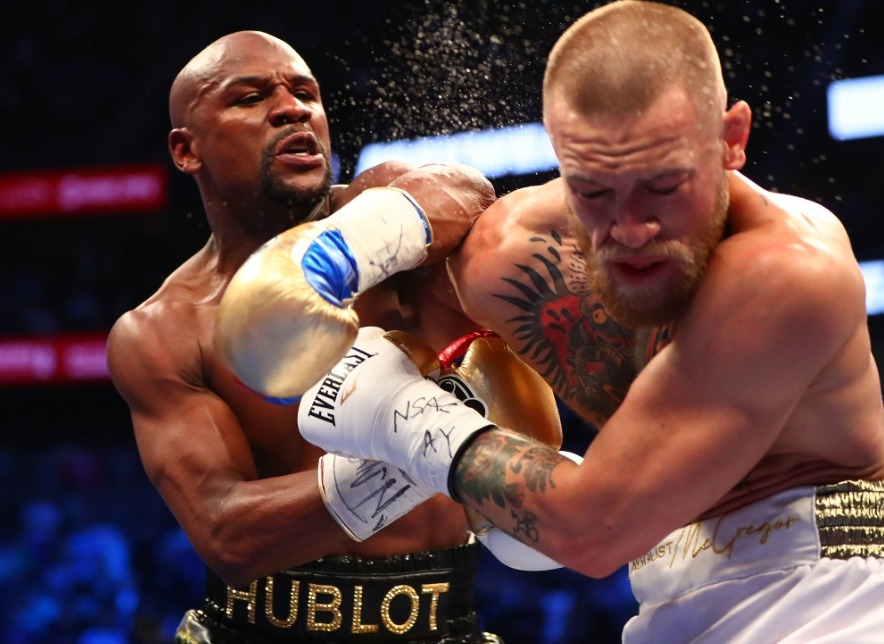
Floyd Mayweather in the Light Middleweight Division:
After a hugely successful run in the welterweight division, Mayweather also tried to make his name in the light middleweight class. He became successful in that by defeating legends like Oscar De La Hoya, Miguel Cotto, Canelo Alvarez, and Conor McGregor. He also won the WBA, WBC, and Ring Magazine world titles at 154lbs.
In 2015, Mayweather put his Ring welterweight, WBC, and WBA (Super) titles on the line against WBA interim champion Andre Berto. Once again, he dominated his opponent and won convincingly. Following this, he announced his retirement once again and vacated his titles.
However, Mayweather returned one more time to fight MMA star Conor McGregor in August 2017 at the T-Mobile Arena in Las Vegas. He defeated the Notorious MMA legend in one of the most successful events of the industry. Finally, Mayweather retired from professional fights.
Floyd Mayweather in Professional & Exhibition Fights:
Floyd Mayweather had an illustrious career in the boxing world. Starting from an exceptional amateur run to a mammoth undefeated streak which remained active in exhibition bouts even after his retirement, Mayweather is without an argument one of the best, if not the best, boxing legends in history.
Here are the career stats and records of Floyd “Money” Mayweather:
- Record: 50-0-0
- Wins by KO: 54%
- DOB: February 24, 1977
- Stance: Orthodox
- Reach: 72 inches
- Height: 5-foot-8
- Current Weight: 155 lbs
- Status: Retired/ Inactive
After retiring from professional boxing, Floyd Mayweather had several exhibition fights and he never tasted defeat in any of those matches. He defeated Japanese undefeated kickboxer Tenshin Nasukawa, his former sparring partner Don Moore, and Japanese MMA star and YouTuber Mikuru Asakura.
Mayweather also defeated YouTuber Deji Olatunji and fought a draw against internet personality Logan Paul. After the fight, he praised Paul saying, “He’s better than I thought he was… he’s a tough, rough competitor.”
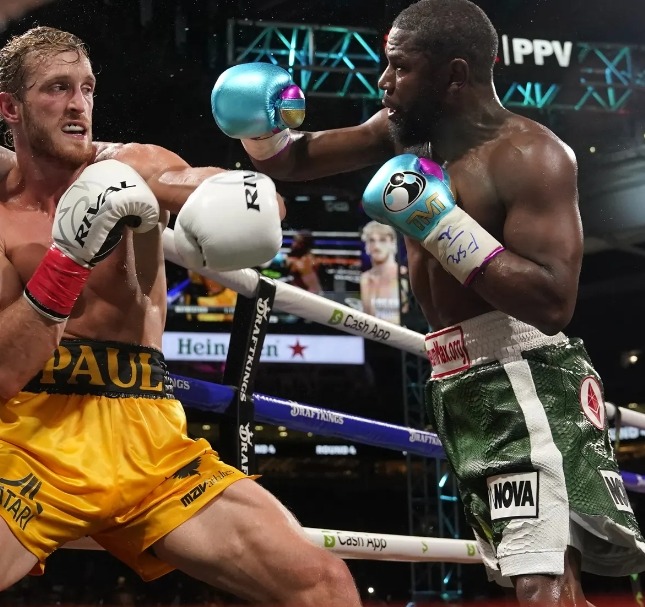
Final Take:
Pretty Boy Floyd ‘Money’ Mayweather was no doubt ‘The Best Ever’ in boxing. The American legend fought in several weight classes and proved his mettle in all of them. However, one weight class that suited Floyd Mayweather the most is welterweight. He was an absolute beast in the 140-147lbs division.
Some of the biggest fights of his career were held in this division during the later phase of his career. He dominated the likes of Canelo Alvarez, Miguel Cotto, Oscar De La Hoya, and Conor McGregor in this division. However, he was almost equally great in other divisions too.
That’s why, his monicker of “The Best Ever” is completely justified. His legacy is simply unmatched.
Frequently Answered Questions:
Which weight class did Floyd Mayweather fight in primarily?:
Floyd Mayweather primarily fought in the welterweight division and had some of the iconic boxing matches in this weight class. However, he also had a good number of fights in other divisions including super featherweight, lightweight, light welterweight, and light middleweight.
What is the heaviest Floyd Mayweather fight?:
The heaviest Floyd Mayweather weighed in was 151lbs for his fight against Miguel Cotto for the 154lbs JMW title. Mayweather fought Oscar De La Hoya in the same 154lbs weight class. He also fought Canelo Alvarez in the catch weight of 152 lbs. Post-retirement, Mayweather fought YouTuber Deji Olatunji in an exhibition match at the catch weight of 175lbs.
What weight class did Mayweather fight Pacquiao?:
A: Floyd Mayweather fought Manny Pacquiao in the welterweight division (147lbs). Their fight became the best-selling pay-per-view bout in history with approximately 4.6 million buys when Mayweather defeated Pacquiao via unanimous decision at the MGM Grand Garden Arena in Vegas.
What weight class did Mayweather fight McGregor?:
A: Floyd Mayweather fought Irish MMA star Conor McGregor in the light middleweight division (154lbs). It was McGregor’s first professional boxing match and Mayweather’s last professional fight. The financially successful bout helped Mayweather earn around $300 million while McGregor earned over $100 million.
Is Mayweather a heavyweight or lightweight?:
Floyd Mayweather is neither a heavyweight nor a lightweight fighter. He primarily fought in the welterweight division which is just above the lightweight class and a division below heavyweight. He also moved up to the light heavyweight division in the later part of his professional career.

Santhan, known to many as Linda, combines her personal training expertise with exceptional motivational coaching skills. Her articles are not just informative but also incredibly inspiring, encouraging readers to take action and pursue their fitness goals. Linda’s unique approach to writing integrates practical fitness guidance with motivational elements, making her content both useful and uplifting.
